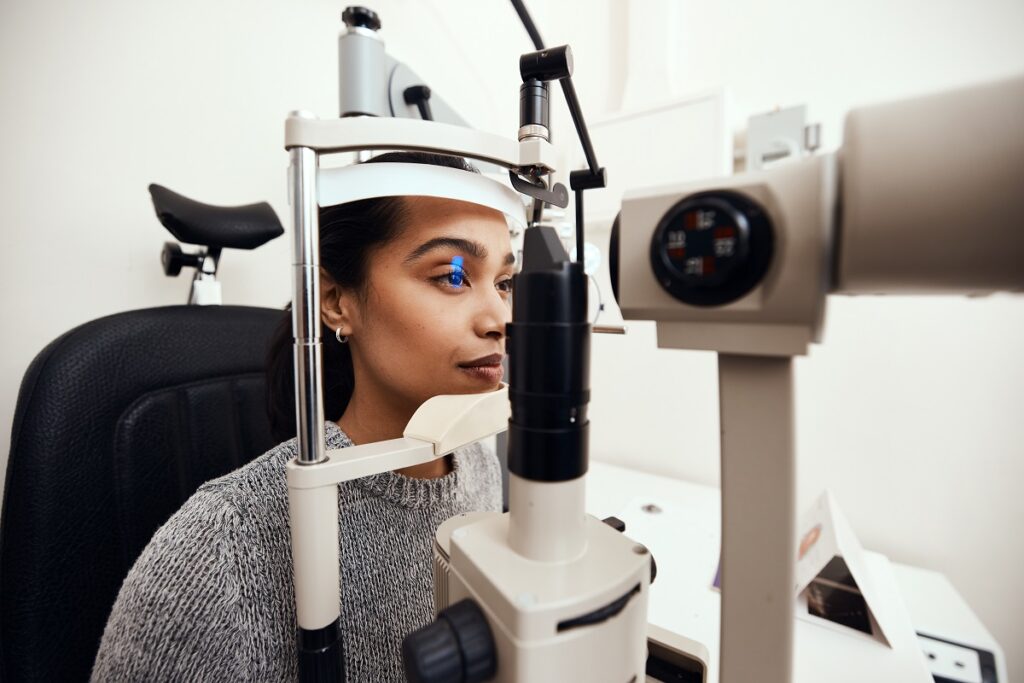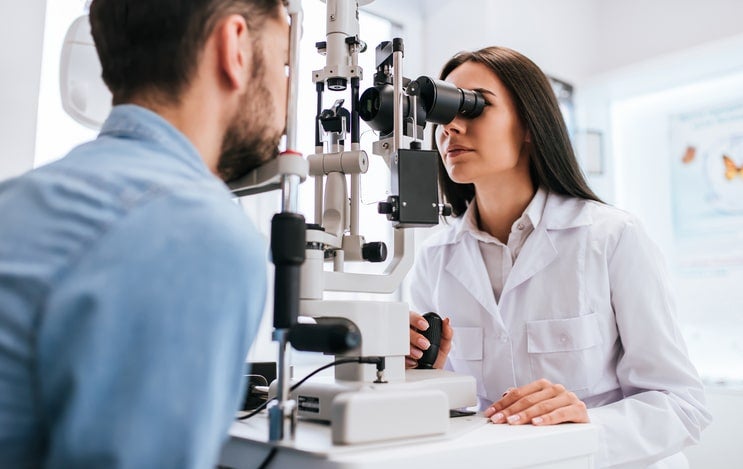Eye Doctor Near Me: Comprehensive Eye Care Services
Eye Doctor Near Me: Comprehensive Eye Care Services
Blog Article
The Value of Routine Eye Examinations: Insights From a Knowledgeable Eye Doctor
Normal eye exams work as an important part of medical care that extends past simple vision correction. An experienced eye physician can offer understandings right into how these assessments not only find usual eye problems however additionally reveal underlying wellness problems that may otherwise go unnoticed. The quiet progression of diseases such as glaucoma and macular degeneration emphasizes the requirement of early detection. Comprehending the frequency and relevance of these assessments can eventually influence one's lasting health and wellness trajectory, raising the concern of just how usually individuals need to prioritize their eye health in the context of overall health.
Advantages of Regular Eye Exams
Although numerous people may ignore the relevance of regular eye examinations, these analyses play an essential duty in keeping overall wellness and wellness. Regular eye evaluations serve not just to examine vision however likewise to find early indicators of systemic wellness concerns, consisting of diabetes mellitus and hypertension. By recognizing these problems at their creation, clients can receive timely treatments, substantially boosting lasting end results.
In addition, eye tests can assist in keeping track of existing health and wellness problems, ensuring that any type of changes in vision or eye health are without delay addressed (optometrist). The analyses enable tailored recommendations relating to eyeglasses, lifestyle changes, and protective actions against prospective eye pressure or damage
Beyond physical health and wellness, the advantages of routine eye examinations expand to enhancing quality of life. Ultimately, prioritizing eye tests cultivates a positive approach to health and wellness administration, empowering people to take cost of their health.
Common Eye Conditions Detected
Routine eye tests are instrumental in spotting a selection of typical eye conditions that can considerably affect vision and total health. Among one of the most widespread problems identified during these examinations are refractive mistakes, consisting of myopia (nearsightedness), hyperopia (farsightedness), and astigmatism. These problems usually materialize as obscured vision and can be quickly remedied with prescription glasses or call lenses.
In addition, cataracts, which cause clouding of the lens, are regularly detected in older adults. This problem can lead to lessened vision and calls for medical intervention for resolution. One more usual concern is glaucoma, a group of eye conditions that damage the optic nerve, commonly connected to enhanced intraocular pressure. Early detection is vital as it can stop irreparable vision loss.
Age-related macular deterioration (AMD) is an additional significant problem that influences central vision, particularly in people over 50. Finally, diabetic retinopathy, a difficulty of diabetes, can bring about severe vision problems otherwise kept an eye on routinely. With detailed eye exams, these conditions can be determined early, enabling timely management and treatment to protect vision and boost high quality of life.
Relevance of Early Discovery
Early discovery of eye problems plays a crucial function in maintaining vision and avoiding significant health problems. Numerous eye diseases, such as glaucoma, diabetic retinopathy, and age-related macular degeneration, can advance calmly without noticeable signs and symptoms in their beginning. By the time symptoms show up, irreversible damages might have happened, causing permanent vision loss.
Routine eye tests assist in very early diagnosis, enabling prompt intervention and therapy. For example, dealing with elevated intraocular pressure can stop the onset of glaucoma, while taking care of blood glucose levels can significantly decrease the threat of diabetic retinopathy. In addition, problems like cataracts can be properly handled with surgical treatment when determined early.

How Commonly Should You Check Out?
Establishing the regularity of eye exams is necessary for preserving ideal eye wellness and vision. The basic recommendation for adults is to have a thorough eye exam each to two years, depending on private threat variables and age. For individuals matured 18 to 60, an exam every two years is commonly adequate if no vision problems exist. Nevertheless, those over 60 must take into consideration annual examinations, as the threat of age-related problems boosts substantially.
People with certain danger variables, such as a household history of eye condition, diabetes mellitus, or existing vision troubles, may require more regular analyses. Kids need to have their initial eye examination at six months of age, complied with by added examinations at age 3 and prior to going into college. Routine check-ups during youth are important as vision can alter swiftly during developmental years.
Eventually, the regularity of sees must be tailored to every individual's situations, consisting of lifestyle, work-related dangers, and any pre-existing eye conditions. Consulting with an eye treatment professional can give individualized referrals, guaranteeing that your eye health is routinely kept an eye on and preserved.
Tips for Your Eye Test
Planning for your eye examination can boost the effectiveness of the check out and guarantee an extensive evaluation of your eye check my blog wellness. To maximize your time with the eye doctor, it is essential to gather appropriate info prior to your appointment. Begin by compiling a list of look at more info any drugs you are currently taking, consisting of over-the-counter medications and supplements, as these can influence eye wellness.
In addition, document any kind of symptoms you have experienced, such as blurred vision, discomfort, or migraines. This details will certainly assist your eye medical professional in identifying prospective problems.
It is also advantageous to have a family members history of eye problems handy, as genetic factors can add to your eye health and wellness. Lastly, take into consideration arranging your examination for a time when you are less hurried, permitting you to ask inquiries and discuss your issues completely. By preparing adequately, you make certain that your eye exam is effective and that your eye doctor has all the essential information to provide the most effective treatment possible.

Conclusion
Regular eye examinations play a crucial function in keeping both vision and total health and wellness. Eventually, prioritizing detailed eye examinations contributes dramatically to the conservation of vision and the improvement of quality of life, highlighting the requirement of routine eye care in preventive healthcare strategies.
Routine eye tests are instrumental in spotting a variety of typical eye conditions that can dramatically influence vision and general health.Establishing the frequency of eye exams is essential for keeping ideal eye health and wellness and vision.Preparing for your eye exam can boost the effectiveness of the visit and make sure a comprehensive evaluation of your eye health and wellness (optometrist). By preparing sufficiently, you ensure that your eye test is productive and that your eye medical professional has all the essential details to supply the finest care possible
Inevitably, focusing on extensive eye analyses adds dramatically to the conservation of vision and the renovation of top quality of life, highlighting the need of regular eye care in preventative index healthcare approaches.
Report this page